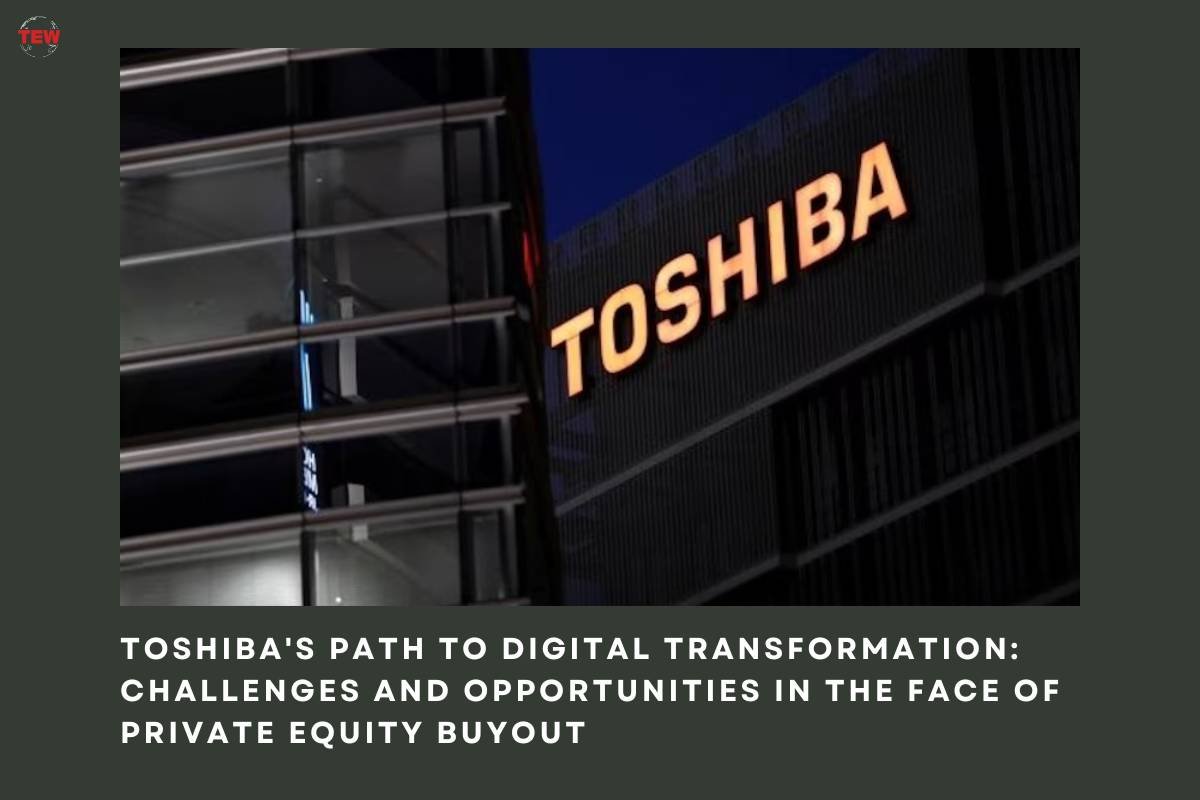(SOURCE-Business-Standard)
As Toshiba approaches its buyout by a private equity fund led by Japan Industrial Partners (JIP), the company is set to undergo a significant transformation, both in terms of operations and strategic vision. The outgoing board chairman, Akihiro Watanabe, emphasizes the necessity for Toshibas Path to enhance efficiency and profitability while making substantial investments in mergers and acquisitions (M&As) to emerge as a digitally driven company under the leadership of CEO Taro Shimada.
Watanabe acknowledges Shimada’s visionary approach to transforming Toshibas Path into a digital platformer, describing it as a step in the right direction. However, he emphasizes the considerable financial commitment required for developing digital and data businesses. To achieve this transformation, partnerships with software and artificial intelligence (AI) companies, and potential acquisitions, are deemed necessary to secure the talent essential for Toshibas Path evolution into a digital powerhouse.
Paved the way for the buyout
The impending delisting of Toshiba from the Tokyo Stock Exchange, with its transition to becoming a wholly owned subsidiary of JIP, marks a crucial phase in the company’s journey. The JIP-led consortium, securing approximately 79% of Toshiba shares in a takeover bid, has paved the way for the buyout, scheduled for Friday. This change in ownership structure is expected to bring about a strategic shift, with Shimada, a former Siemens executive, leading the company as CEO, while a new board, including officials from JIP and its consortium partners, takes charge.
Watanabe, a seasoned veteran with 40 years in the M&A advisory business, played a pivotal role in overseeing Toshibas Path exploration of strategic alternatives, including the potential buyout. His experience in managing competition among potential bidders, and balancing the interests of foreign activist shareholders and the Japanese consortium, demonstrates the complexity of orchestrating such significant corporate transactions.
While JIP is anticipated to pursue a swift turnaround of Toshiba and a potential relisting of its shares, Watanabe cautions against hasty actions. Instead, he advocates for a collaborative approach, urging the new owners to engage with CEO Shimada in determining a shared direction for the company. The immediate priority, according to Watanabe, is to enhance profitability, allowing Toshiba to finance its digital aspirations and address the substantial debt it will inherit from the JIP-led consortium.
Already initiated a four-year 70 billion yen cost-cutting drive
Estimates suggest that Toshibas Path debt could increase by over 1 trillion yen ($7 billion) due to the buyout, with annual interest costs rising by hundreds of millions of dollars. To counter this, Toshiba has already initiated a four-year, 70 billion yen cost-cutting drive under Shimada. Watanabe underscores the importance of improved profitability as the first crucial hurdle for Toshiba to gain investor trust and secure low-cost borrowing.
Acknowledging that the final buyout deal may not fully satisfy activist shareholders, including Farallon Capital, 3D Investment, and Effissimo Capital, Watanabe notes the extended time horizon for their investment recovery. Despite Toshiba shares experiencing a 45% increase over six years, external factors such as the yen’s depreciation against the dollar and global technology industry downturns have impacted overall returns.
Shape the landscape for both Toshibas Path and future engagements
Watanabe remains optimistic, however, stating that activists likely gained valuable insights from this investment, particularly regarding the intricacies of privatizing a large industrial company responsible for critical infrastructure systems. His comments suggest that activist investors may continue to engage with Japanese companies in the future, indicating a potential trend of increased involvement rather than a winding down of their participation.
In conclusion, Toshiba stands at a pivotal juncture as it navigates the complexities of a private equity buyout and strives to reinvent itself as a digital leader. The challenges ahead, including managing debt, enhancing profitability, and executing successful M&As, underscore the significance of strategic decision-making and collaboration between the new ownership and Toshibas Path leadership. As the digital transformation journey unfolds, the lessons learned from this experience may shape the landscape for both Toshiba and future engagements between activist investors and Japanese corporations.





